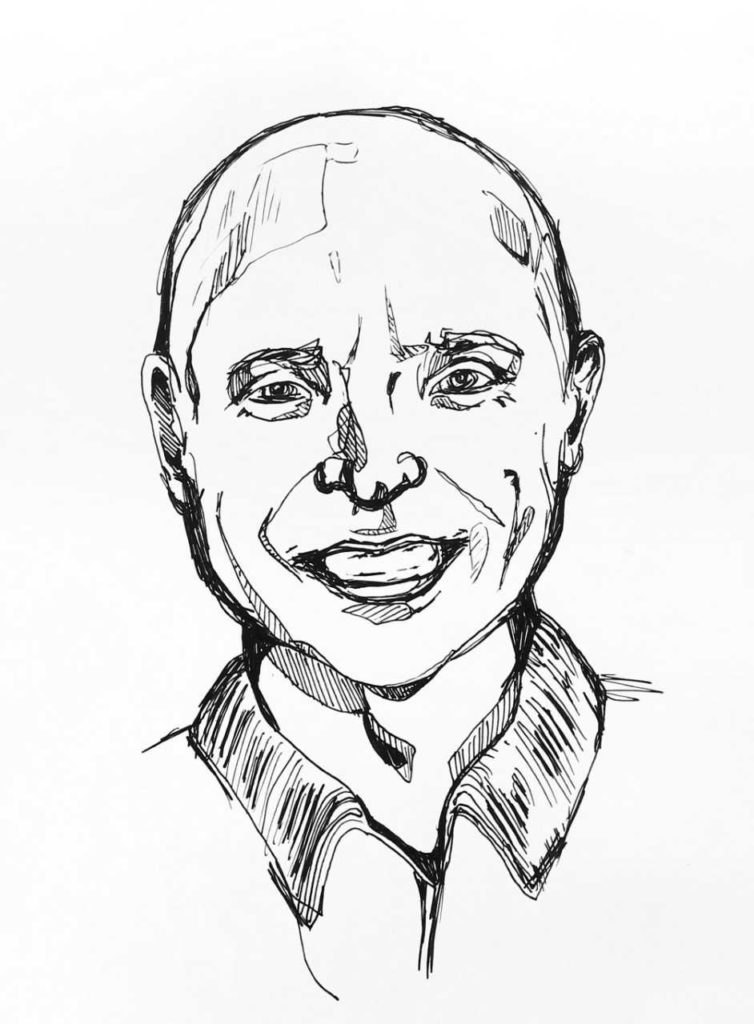By Madelyn Matsubara
matsubar@grinnell.edu
Professor Ralph Savarese’s, English, newest book, “See it Feelingly: Classic Novels, Autistic Readers, and the Schooling of a No-Good English Professor,” is a composition of literary-based interactions with people from the autistic community. Aiming to change the negative stigma generally surrounding autism, Savarese exposes the truly magnificent advantages to the different neurotype.
Due to the popular medical opinion that autistic people have impairments in “language, imagination and social interaction,” they are constantly excluded from a society built for the perpetuation of non-autistic privilege. Savarese disputes the implications that autistic people have only an affinity for math or science, and inserts that he has worked with “some very, very talented autistic writers.”
The impact of Savarese’s son on his work has been monumental. Not only is he immensely proud of him for being one of the few non-speaking autistic people in the world to have a college degree, but his son has taught him that there is so much to autism that is still unknow. The premise of his book is founded upon the concept of inclusion, the disintegration of social stigma and equal opportunity for people with disabilities.
In an interview with Savarese, he explains that composing the book itself was quite the process. He had interacted with six autistic collaborators, ages ranging from 25 to early 70s. One collaborator was his son, and the other five were adults that he had met through his work or by chance. Savarese explains that he read two chapters of Moby Dick a week for 17 weeks with his collaborator Tito Mukhopadhyay. Though his work for this book was time consuming, he viewed the time he spent as a “virtue.”
Although he has read Moby Dick many times in his studies, Savarese stated that his experience with Mukhopadhyay “had been incredibly revelatory” to him. In choosing which works to analyze, Savarese tried to ensure that his collaborators would enjoy the stories. He used Skype to discuss the novels and short stories with the autistic contributors and kept detailed records of what was said by using the voice memo function and the sidebar typing area of Skype.
Once he transcribed the records, Savarese had a catalog of every discussion he had. This was important because although “clearly … [he is] sitting there and interpreting and telling the story and framing the story, there’s enough quotation from my autistic collaborators that the story is theirs too.” Savarese’s efforts to record their discussions gives the reader insight into the minds of the autistic people he collaborated with.
Living with biological and social differences, Savarese’s collaborators provided unique insight to these classic texts. Biologically, autistic people have a different mind-body connection. While non-autistic people are incredibly attuned to the semantics of a conversation, autistic people hear more phonetically, with less attention to the actual meaning of what is being said. Not all autistic people share the same advantages and disadvantages to their neurotype, though. Mukhopadhyay, for example, prefers to hear a book on tape, because although he is literate, his mind processes the page of a novel differently. Rather than seeing words that immediately form meanings, Tito sees the design and patterns the words make, then, once he concentrates on the individual words, he reads them.
Savarese stated that he believes there are “advantages and disadvantages to each neurotype.” For instance, autistic people are incredibly talented in hearing phonetic patterns in poems such as assonance, or consonance. Non-autistic people have to develop the skill of hearing the patterns. Savarese asserted that the “idea that an autistic person might bring a different brain … with different tendencies to a text is not a bad thing.”
The neurodiversity movement, of which Savarese is a part, is working to allow people with all neurotypes to have the equal opportunity to education and to inclusion. The general associations with autism being “unempathetic” or “asocial,” suggest someone who “doesn’t want friends, who is incapable of feeling for other people.” However, autistic people are so much more than that. As Savarese and many others are working to change the popular assumptions about autistic people, his book asks “people to think quite differently about autism … [and] also about what autistic strengths might be.”
Savarese’s book is available now. It is published by Duke University Press.


























































